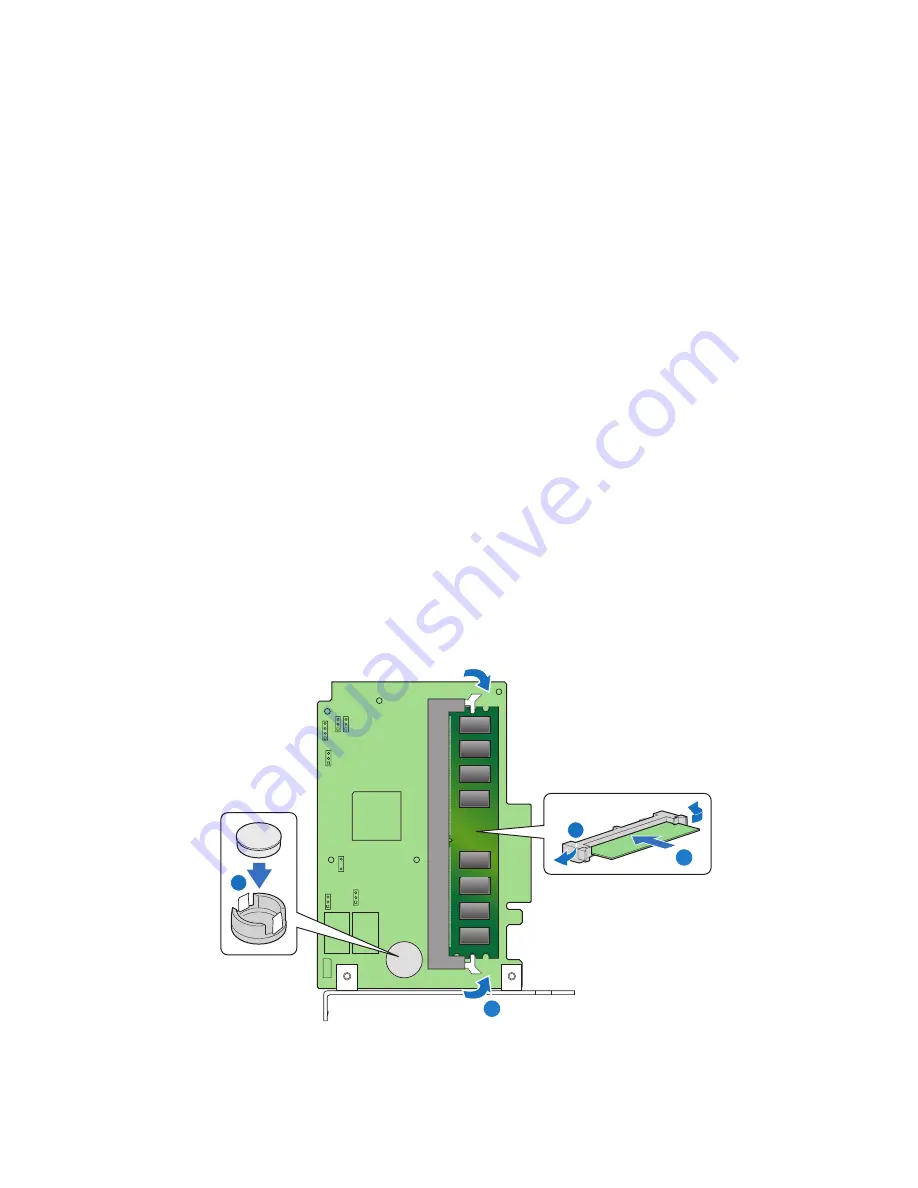
93
Installing and removing the RAID activation key
and RAID cache
The optional RAID activation key and RAID cache enables enhanced
RAID functionality on the SAS module. The RAID cache serves as
memory for the SAS controller, and as a disk cache to store write data
to the drives. The RAID cache must be a 512 MB DDR2-667 DIMM.
To install the RAID activation key and RAID cache:
1
Perform the pre-installation instructions described on page 39.
2
Remove the processor air baffle. Perform instructions described in
“To remove the processor air baffle” section on page 45.
3
Remove the SAS module. Perform instructions described in “To
install the SAS module” section on page 89.
4
Remove the RAID activation key from its protective packaging.
5
Align then insert the activation key into the RAID activation key
connector on the SAS module
(A)
.
6
Open the clips on the RAID cache slot on the SAS module
(B)
.
7
Align then insert the RAID cache into the slot
(C)
.
8
Push down on the top edge of the RAID cache until the holding
clips snap in place
(D)
.
9
Observe the post-installation instructions described on page 40.
D
C
RAID
Key
A
B
C
Summary of Contents for Altos R920 Series
Page 1: ...Acer Altos R920 Series User s Guide ...
Page 18: ...xviii SAS configuration utility 180 SAS RAID configuration utility 182 Index 185 ...
Page 19: ...1 System tour ...
Page 47: ...2 System setup ...
Page 55: ...3 System upgrade ...
Page 60: ...3 System upgrade 42 To install the front bezel Slide the front bezel onto the chassis ...
Page 115: ...4 System BIOS ...
Page 153: ...5 System troubleshooting ...
Page 166: ...5 System troubleshooting 148 ...
Page 167: ...Appendix A Rack mount configuration ...
Page 168: ...This appendix shows you how to set up the Altos R920 system in a rack mount configuration ...
Page 176: ...Appendix A Rack mount configuration 158 6 Fully extend the mounting rails on the rack ...
Page 180: ...Appendix A Rack mount configuration 162 ...
Page 181: ...Appendix B Memory configuration ...
Page 195: ...Appendix C SAS and SAS RAID configuration utilities ...
Page 196: ...This appendix gives an overview of the RAID configuration utilities supported by your server ...
Page 202: ...Appendix C SAS and SAS RAID configuration utilities 184 ...
Page 206: ...188 ...






























